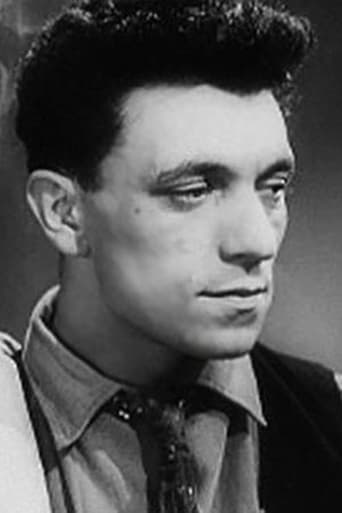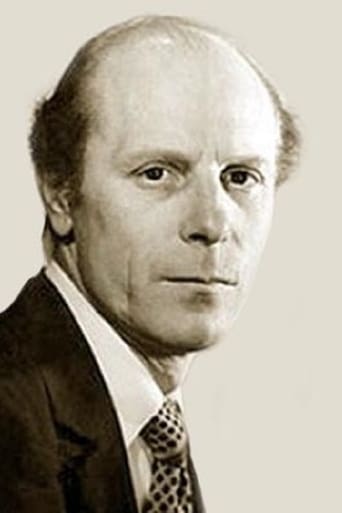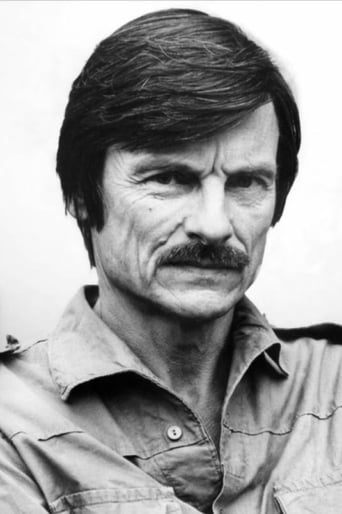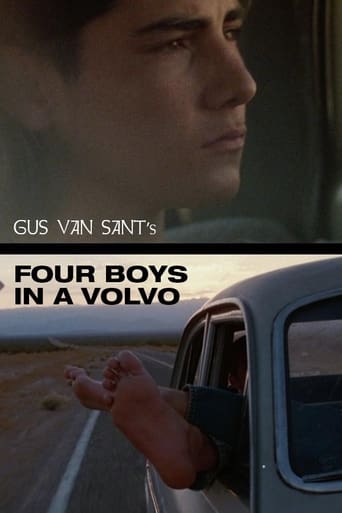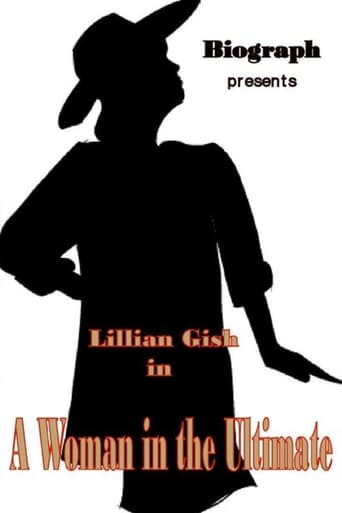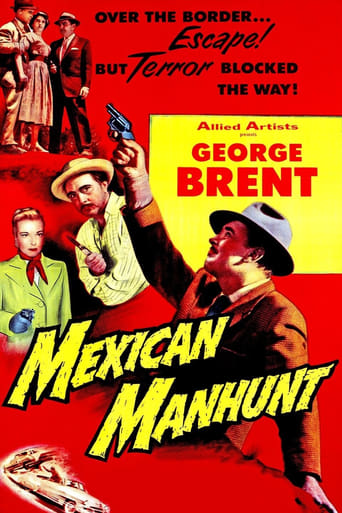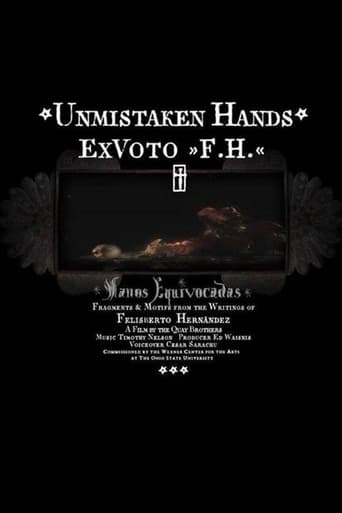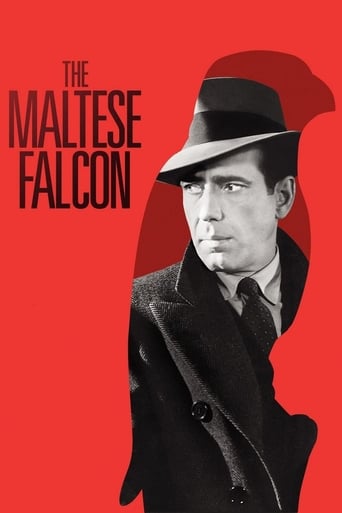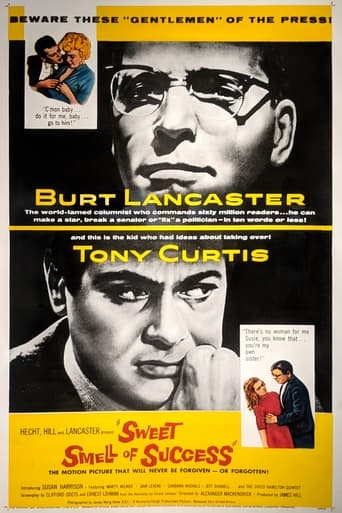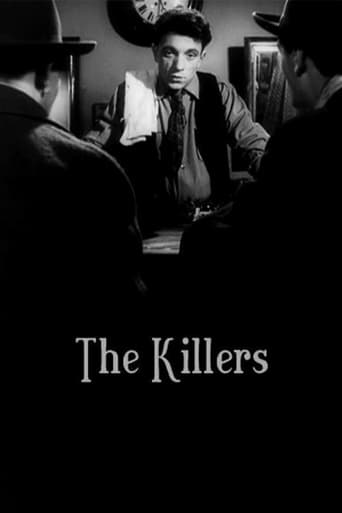
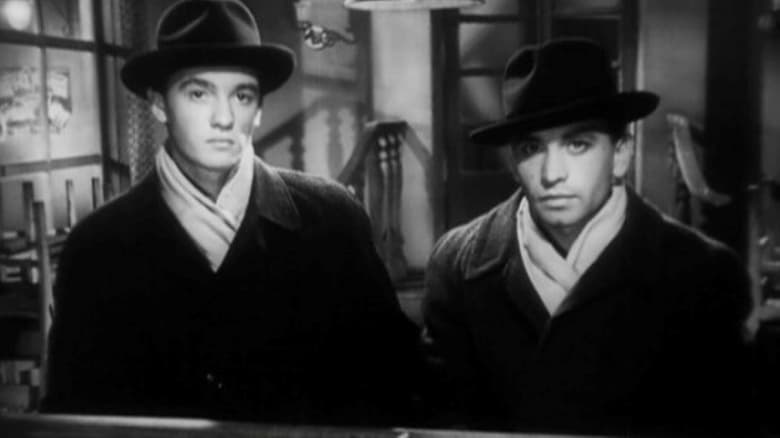
The Killers (1956)
The Killers is a 1956 student film by the Soviet and Russian film director Andrei Tarkovsky and his fellow students Marika Beiku and Aleksandr Gordon. The film is based on the short story "The Killers" by Ernest Hemingway, written in 1927. It was Tarkovsky's first film, produced when he was a student at the State Institute of Cinematography.
Watch Trailer
Cast
Similar titles
Reviews
Am i the only one who thinks........Average?
Admirable film.
Although it has its amusing moments, in eneral the plot does not convince.
By the time the dramatic fireworks start popping off, each one feels earned.
This short film was a student project for a Soviet state film school, and I don't know how much exposure it would have had at the time it was made. It survives for viewing because one of the three students directors was a young Andrei Tarkovsky, and though his resources were constrained, the strength of the work is made evident through how much is done with a very basic production. The door out of the restaurant seems to lead to a blank wall, but we nonetheless get the lonely atmosphere of a small-town American diner; the filmmakers really seem to have drank in the feel of the Hemingway they read for this adaptation. It's really a twenty-minute atmosphere piece, and it does that very well - the two murderers create a complete and stark sense of threat and menace. In a constrained setting they made a claustrophobic and memorable film, with a real film-noir feel where we weren't necessarily expecting to find it. High marks!
For a class project in a cinema program this isn't bad at all, more of a reenactment of Hemingways's killer short story than a feature film. It takes about as long to watch it as it does to read the original story, with which I assume most of us are familiar.The images are rather crude, the sets spare, and some of the acting is amateurish, although Aleksandr Gordon as George, the manager, is pretty good. He has the pock-marked sullen face that seems suitable to the role of the ordinary man in a frightening one-down position. The other notable performance is by Vasili Shukshin as Ole Anderson, the resigned victim awaiting his fate in a dumpy rooming house.The movie follows the written story closely. In print, when Ole is visited by Nick Adams and, halfway through the conversation, rolls over and faces the wall, he does the same on film. We don't see much of Ole's room. I suppose the budget didn't allow for much display. But when Ole stubs out his cigarette on the wall next to his bed, we see that numerous other butts have been stubbed out in the same place and that tells us most of what we need to know.The directors have made a few changes that don't interfere with the narrative in any way -- bits of business in which one of the killers flicks a few tiny objects off the counter top with his fingertip, that sort of thing.The only jarring change is the virtual elimination of the role of Sam the black cook. It's too bad because this is in no way a funny story and Sam provides the few light-hearted moments.No sign of directorial self display. It opens with a POV shot and there are one or two other slight surprises but it's not a Fourth of July fireworks by any means. It's functionally presented.The English names of the characters is retained and on the café window we see that coffee costs "5 centes." I call it admirable fealty to the source, mistake and all.What must it have been like, living in a nation in which Ernest Hemingway's work wasn't allowed to be published until 1956? But never mind literature -- can you imagine American movies without ten versions of "Crime and Punishment"? I'm waiting for a Hollywood blockbuster called "The Master and Margarita" starring Jude Law and Angelina Jolie.
Although I did like the 1946 adaptation of the Killers, I wasn't sure how a Russian, let alone someone who is usually much more into the visual prowess of things like Andrei Tarkovsky, would tackle Ernest Hemingway's brief, pulpy story of men on a mission and a man in hiding from those men. Turns out it's one of the best short films I've seen from a soon-to-be world renown European auteur, because of it's emphasis on the simplicity of suspense, of human action in desperate circumstances and how it's filmed with a mix of the noir style and with Tarkovsky's dependence on figures in curiously exciting compositions. He isn't alone on the film, however, as the middle scene at the apartment was directed by friend Alexander Gordon, with Tarkovsky directing the bigger chunks at the diner, and another guy Marika Beiku co-directing overall. Since the apartment scene is so short though, and accounts for just three shots, one being most elaborate as it goes in and out, tight and wide, on the morose Swede in hiding and his friend at the diner filling him in on what happened, it's mostly Tarkovsky's game here.Part of the skill, and curiosity, in how tense the long first scene at the diner is that music is completely absent, with the only tone coming from Tarkovsky himself as a whistling customer. Meanwhile, Tarkovsky uses Hemingway's dialog in a very realistic manner, even when he goes deliberate angles, like when George goes into the back with the sandwiches and we see his feet in the same tilted frame as an empty can on the floor, or with the usage of the mirror on the wall. There's also the suddenness of seeing a machine gun that strikes things up in the room, and just the general attitude of Al and Max, the hit men, as they keep calling George "bright boy" in a way that reminds me of the curious double-talk in a self-consciously bad-ass movie like Pulp Fiction (not to mention the near casual usage of the 'N' bomb). While it ends sort of on a screeching halt, the sense of ambiguity as to the fate of the Swede as well as everyone else in the diner who hid the secret is worthwhile for the material, as it's perfectly anti-climactic. It's not entirely a simple experiment, as it's too polished for that, but I couldn't see how it could be made any longer either. It's perfectly paced and acted nearly as well, and it's a fitting pre-cursor to the un-prolific but remarkable career of one of Russia's most important filmmakers.
Pure genius, though a short, it sends out images of poetry and passion. Seeing an early stage of formation of majestic artistry will astonish all who sees this film. Rich and powerful, it is an element that sends emotions through all who experience this inspired film.
